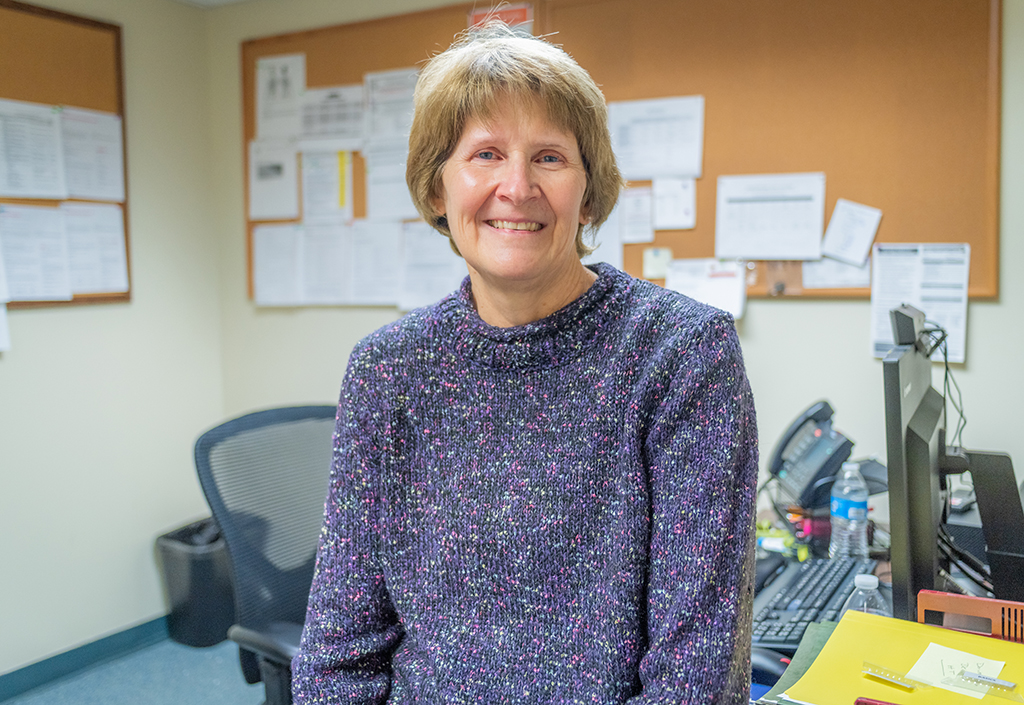‘I’ve been invested in Clark for many years’

Robin McNally left behind a career as a nurse practitioner in a Worcester emergency room to join Clark Health Services in 1990. While her nursing colleagues insisted she’d be back, the truth is, she never even looked back.
In fact, over the years, McNally relished the opportunity to work with Clark students and help them meet the challenges of everything from chronic illness to COVID. Now she’s going to administer some TLC to herself. On December 16, after 32 years at Clark Health Services — the last 25 of them as director — McNally is retiring. Felicia Smith, a nurse practitioner who has worked at Clark Health Services for several years, will take over as director.
“If somebody had told me I’d be here for more than three decades, I would have laughed at them,” McNally says. “But I’m one of those fortunate people who loves my job. We have an amazingly diverse group of students who come from all over the world. This is a pretty cool place, and there’s never a dull moment.”
When McNally arrived on campus, Clark was operating its own Health Services office on the first floor of Wright Hall. The University eventually contracted the service to what is now UMass Memorial Health. “UMass pays me,” McNally notes, “but for all intents and purposes, I work for Clark.”
McNally has seen significant changes over the course of her long career. The demand for mental health services has risen in the last few years and intensified during the height of COVID, and Clark has been deeply involved in helping students address their struggles with anxiety and depression, she says.
The expectations of some students and parents about the level of services her office provides have also ramped up — unrealistically so in recent years, McNally says. “I think the goal should be to make students more independent. When we don’t, we’re doing them a disservice.”
COVID-19 was a challenge for everyone, given all the unknowns when it made its presence known in early 2020. But McNally felt confident about the University’s ability to address the virus, especially given Health Services’ collective experience and existing systems for dealing with all types of communicable diseases. Her well-informed and plain-spoken guidance was frequently sought and highly valued when decisions were being made about Clark’s approach to the pandemic.
“We already had a foundation in public health, so we were very plugged in to the local and state public health departments,” McNally says. “A lot of what we do goes on behind the scenes.”
COVID unsettled many students, she acknowledges, but most came to accept that common-sense precautions were necessary and effective. Even as the virus has become better understood and precautions have been eased, McNally’s office continues to maintain up-to-date records of students who report testing positive.
As she looks ahead to retirement, McNally’s plans include spending time with family and friends, travel, hobbies, and perhaps some volunteering. She’ll especially miss her Health Services team and her Clark colleagues across campus, and insists that even as she turns over the responsibility for students’ medical care to others, she’ll always carry the experience with her.
“I can’t say enough about my time here,” she says. “I’ve been invested in Clark for many years, and in a way, I always will be.”


